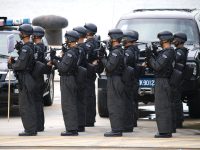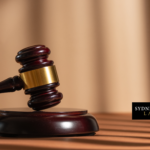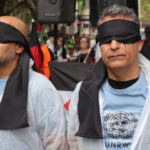Bail Laws to Get Tougher for Suspected Terrorists

Regular readers of our blog will know that the NSW government has been changing the law on bail more frequently than most of us can keep up with.
And now, the Baird government has announced that more changes are on the way.
The Story So Far…
The old NSW Bail Act 1978 created a web of rules that proved to be unworkable and, in many cases, unfair. In fact, the Act had been altered a whopping 85 times in 36 years.
Some offences carried a presumption against bail, which meant that the defendant would ordinarily be refused bail. Others situation carried a presumption in favour of bail, meaning that the defendant would normally be granted bail. Still others carried no presumption either way – so whichever side persuaded the court would be successful.
The complexity and injustice created by the numerous changes to the Act led to its replacement in May 2014 by the NSW Bail Act 2013. This new Act got rid of the old presumptions and introduced a ‘risk management’ approach– which looked at the risk that the applicant might do things like commit further offences while on bail, interfere with witnesses, fail to attend court when required etc.
A defendant who was likely to engage in any of these things was deemed to be an ‘unacceptable risk’, and would be refused bail unless conditions could be imposed which would take away that risk.
The new law made sense and was much fairer; but within months, tabloid newspapers and talk-back radio hosts sensationalised nonsensical claims that the laws put ‘dangerous criminals’ on our streets.
The NSW government was quick to jump on the bandwagon – talking tough about making the law stricter.
Amendments were made to the Act, so that the ‘unacceptable risk’ test was joined with a new list of ‘show cause’ provisions, which essentially mean that people charged with certain offences would have to prove why they should be released, even if they posed no unacceptable risk to the community at all.
They would be refused bail if they failed to do this. The amendment was described as an attack on the presumption of innocence, not to mention an undermining of the ‘risk management’ approach.
But despite these and other major changes, further crackdowns are now in the sight of the NSW government.
Aftermath of the Sydney Siege
This newest change to NSW bail laws was proposed in the wake of the inquest into the Sydney Siege.
After the siege, many questioned how Man Haron Monis could ever have been allowed bail in the first place, when he was facing over 40 sexual assault charges and with being an accessory to the murder of his ex-wife.
As a reaction to the tragic siege, Premier Baird said that we must prevent this situation from reoccurring by toughening up bail laws.
However, as we have pointed-out over and over again, Monis was granted bail under the old Bail Act – no application was ever made for his bail to be revoked under the new Bail Act, despite the fact that this was open to the prosecution at any time.
Indeed, perhaps the prosecution should have made an application to revoke Monis’ bail after he published threats on social media in the days leading up to the siege. But as is often the case, these facts have been ignored by shock-jocks and tabloids in their misleading, sensationalist reports – which have been sucked up by the government.
Last week, the inquest also revealed that incompetence on the part of the prosecution during Monis’ bail hearing. Indeed, the DPP solicitor admitted to making grave errors during Monis’ bail hearing in court. He was inexperienced and failed to consider crucial evidence which may have changed the outcome.
Incredibly, the unnamed lawyer failed to mention the crucial fact that Monis was already on bail for sending offensive letters to families of dead Australian soldiers. He also failed to make submissions that Monis was a potential danger to the community and a flight risk. The Presiding Magistrate made his decision to grant conditional bail under the old Bail Act in the absence of all of this information – yet some members of the public blame the judiciary for Monis being granted bail.
The New Proposals:
Mr Baird conveniently ignores all of the above facts, instead announcing that:
“We are introducing new laws to ensure that, except in the most exceptional circumstances, anyone with links to terrorism or violent extremism, including returned foreign fighters, will be refused bail.”
The Opposition supports the proposed changes, with Luke Foley calling the laws “common sense”.
However, not everyone agrees with the major political parties. Spokesman for the Australian Lawyer’s Alliance, Barrister Greg Barns, says that:
“if he [Baird] is saying that a person who simply thinks or writes something that may be seen as vaguely sympathetic to a terrorist organisation… ought to be behind bars, then he is sending New South Wales down a very slippery slope towards authoritarianism.”






